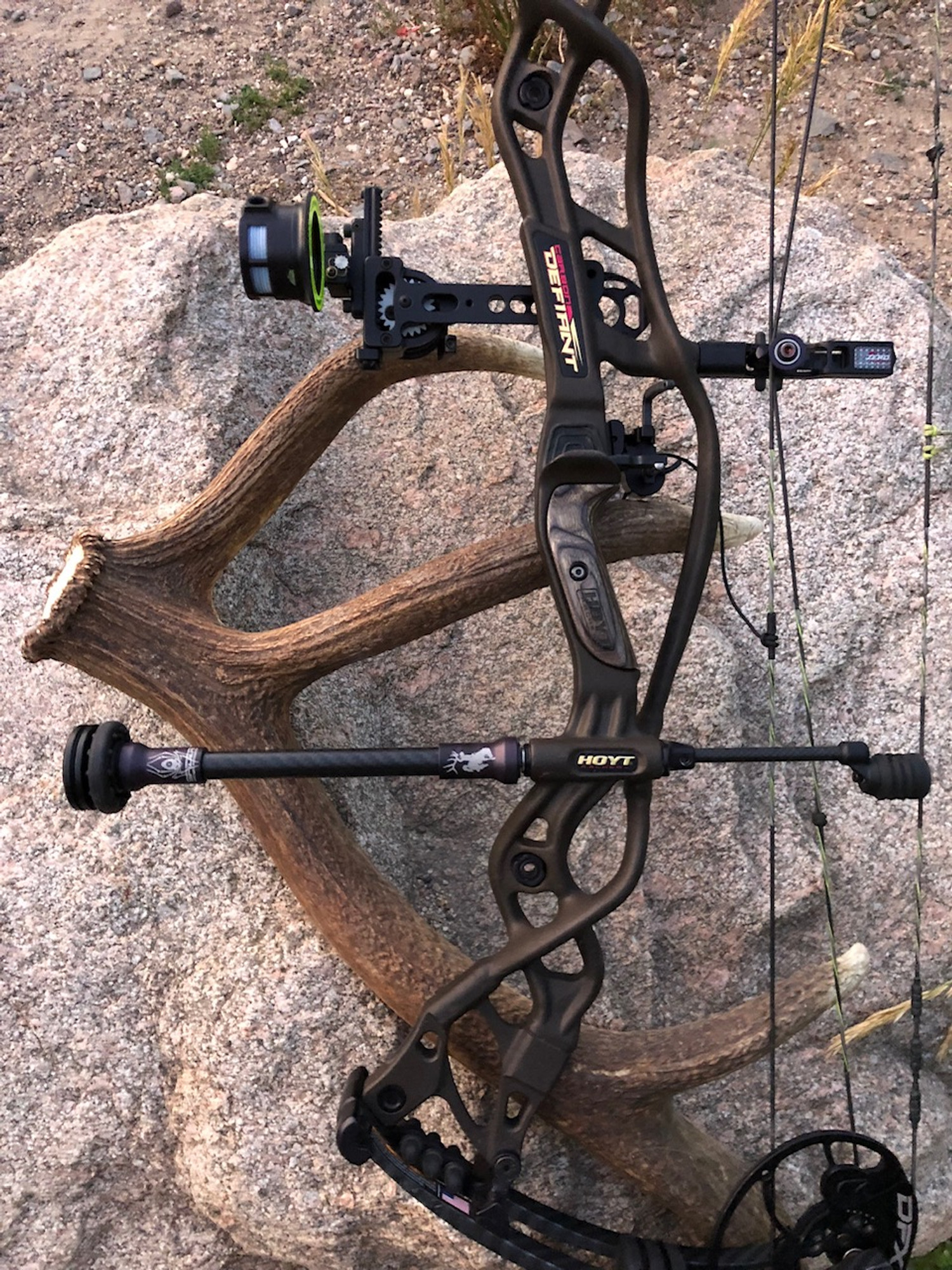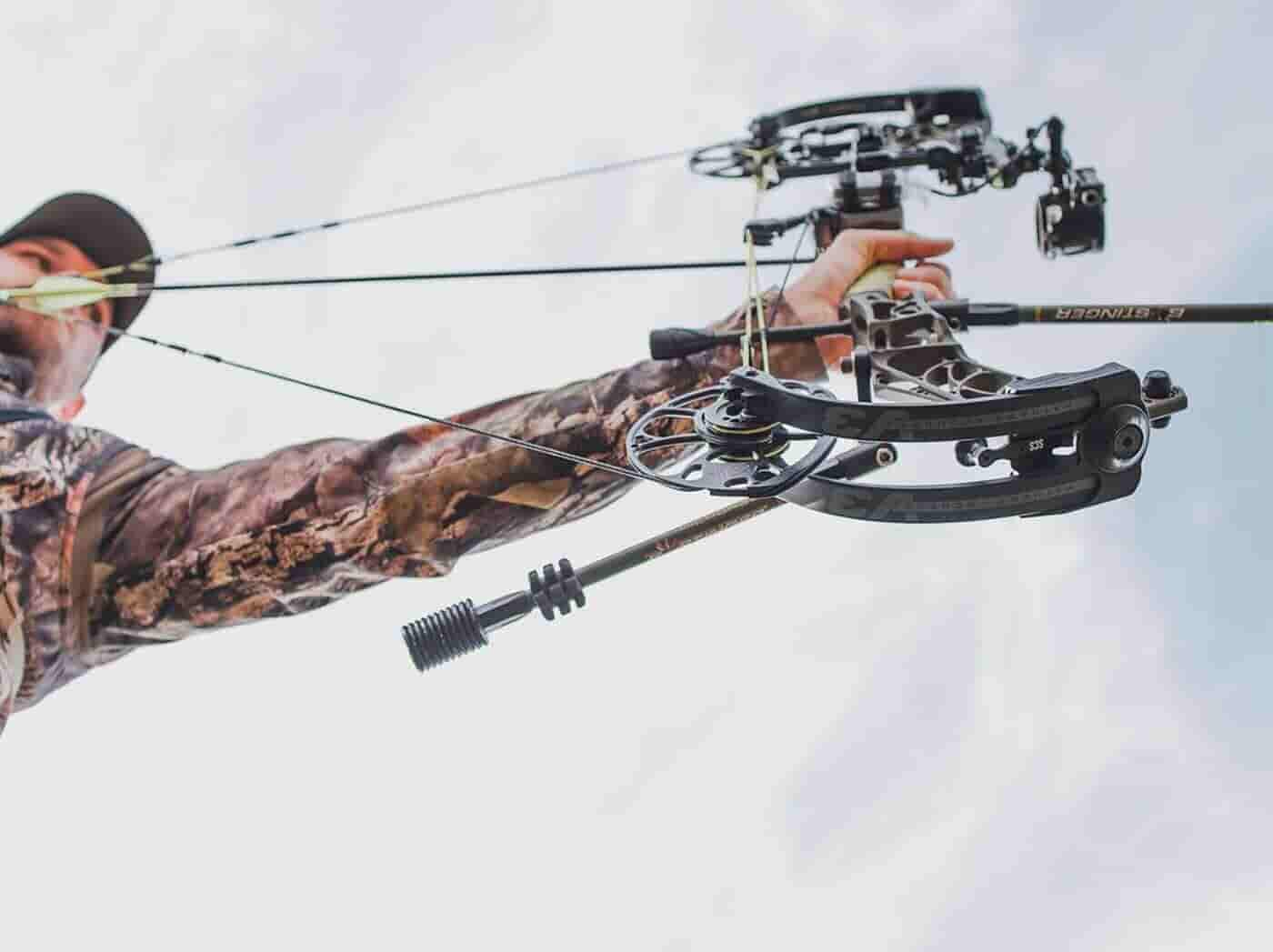Master the Art of Archery: Recognizing the Relevance of a Stabilizer in Your Setup
Archery, an old sport that needs accuracy, ability, and emphasis, has astounded individuals for centuries. Whether one is a skilled archer or simply starting their journey, the relevance of a stabilizer in their arrangement can not be overstated. This critical tool plays a significant duty in boosting precision and enhancing overall efficiency. By recognizing the benefits of making use of a stabilizer, thinking about the best elements when picking one, and effectively setting up and adjusting it, archers can elevate their abilities to new heights. Allow us check out the complexities of understanding the art of archery and discover the indispensable role that a stabilizer plays in attaining success on the range.
The Role of a Stabilizer in Archery
A stabilizer plays an important role in archery by improving balance and minimizing resonances throughout the shot. A stabilizer aids to neutralize these resonances by dissipating the energy and absorbing (archery stabilizer).
One of the primary advantages of a stabilizer is its capacity to enhance equilibrium. The weight of the stabilizer assists to distribute the weight uniformly, minimizing the pressure on the archer's arm and enhancing stability.
In addition to balance, a stabilizer likewise helps to reduce torque. The weight and layout of a stabilizer combat this rotation, making certain a much more consistent and precise shot.
Advantages of Utilizing a Stabilizer
The utilization of a stabilizer in archery uses various benefits that enhance an archer's efficiency and total shooting experience. A stabilizer aids to decrease the vibrations generated upon launch of the arrowhead. These resonances can create the bow to torque or twist, leading to incorrect shots. By absorbing and wetting these resonances, the stabilizer improves the stability of the bow, permitting even more constant and precise shots.
Second of all, a stabilizer aids to stabilize the bow by including weight to the front end. This weight circulation neutralizes the all-natural propensity of the acquiesce tip onward upon launch, decreasing the quantity of activity and boosting the archer's capacity to keep purpose on target.

Lastly, a stabilizer can likewise act as a shock absorber, minimizing the shock and recoil experienced upon launch. This not only boosts the comfort of capturing yet also decreases the risk of injury or stress on the archer's body.
Exactly How a Stabilizer Boosts Accuracy
Enhancing the accuracy of an archer's shots, a stabilizer plays a critical duty in improving overall performance. archery stabilizer. By adding security to the bow, a stabilizer assists lessen the undesirable activity and resonance that can occur throughout a shot. This reduction in motion allows the archer to preserve a steady aim, resulting in even more exact and constant shots

Furthermore, a stabilizer helps to moisten vibrations that happen upon release. These resonances can create the acquiesce tremble, impacting the arrow's trajectory and accuracy. By absorbing and dissipating these vibrations, a stabilizer helps to maintain the bow's stability and make sure a smooth and accurate shot.
Additionally, a stabilizer can likewise aid in balancing the weight circulation of the bow (archery stabilizer). By including weight to the front of the bow, a stabilizer helps to balance the weight of devices, such as sights or quivers, which might be connected to the bow. This well balanced weight circulation aids the archer preserve a controlled and constant capturing position, leading to boosted precision
Aspects to Think About When Selecting a Stabilizer
When picking a stabilizer for your bow, it is essential to think about a number of elements that will add to its general efficiency and viability for your individual shooting design. helpful resources The very first element to take into consideration is the size of the stabilizer.
An additional factor to think about is the weight of the stabilizer. The weight of the stabilizer can influence the balance of your bow. A larger stabilizer can help to boost and decrease vibrations stability, leading to a steadier shot. A lighter stabilizer might be favored by shooters that focus on ability to move and rate.
Some stabilizers have adjustable functions, such as flexible length or flexible weights, which allow you to tailor the stabilizer to your details demands. Carbon fiber stabilizers are light-weight and long lasting, while aluminum stabilizers supply an equilibrium between weight and strength.
Different stabilizers might work much better for certain shooting styles, such as target capturing or hunting. It is recommended to seek advice from with knowledgeable archers or professionals to establish which stabilizer will finest suit your private requirements.
Tips for Properly Changing a stabilizer and installing
Correct installment and change of a stabilizer is critical for optimizing its efficiency and ensuring ideal shooting accuracy. When mounting a stabilizer, it is important to adhere to a few key steps to ensure its efficiency. First, determine the suitable length this post of the stabilizer based upon your capturing design and choices. Longer stabilizers provide more stability however can be much less maneuverable, while shorter stabilizers provide enhanced maneuverability yet might sacrifice stability. Once you have chosen the appropriate length, affix the stabilizer to the bow making use of the given placing equipment. Ensure that the stabilizer is safely attached and straightened with the bow's riser.
After setting up the stabilizer, it is required to make changes to accomplish the desired balance and shot consistency. Beginning by changing the weight distribution along the stabilizer. This can be done by adding or eliminating weights from the stabilizer's weight system. Try out various weight arrangements to discover the equilibrium that functions finest for you. Additionally, take into consideration readjusting the angle of the stabilizer to adjust the shot. A small forward or backward tilt can affect the bow's balance and how it responds during the shot.

Conclusion
Finally, a stabilizer plays an essential duty in archery by enhancing accuracy and lowering bow torque. By adding weight to the bow, it helps to stabilize and support the shot. When selecting a stabilizer, elements such as length, weight, and product need to be considered to meet individual requirements. Appropriate installment and change of the stabilizer are additionally crucial for optimal efficiency. Understanding the usage of a stabilizer can greatly boost the archer's ability and precision.
Moreover, a stabilizer can additionally assist in balancing the weight distribution of the bow. By adding weight to the front of the bow, a stabilizer assists to stabilize the weight of devices, such as quivers or views, which might be attached to the bow. Some stabilizers have flexible features, such as adjustable size or flexible weights, which enable you to customize the stabilizer to your certain demands. Carbon fiber stabilizers are long lasting and light-weight, while light weight aluminum stabilizers supply an equilibrium in between weight and strength.
Longer stabilizers give even more security yet useful link can be much less manoeuvrable, while shorter stabilizers use boosted maneuverability however may sacrifice stability.
Comments on “Discovering Archery Stabilizers: Finding the Perfect Fit”